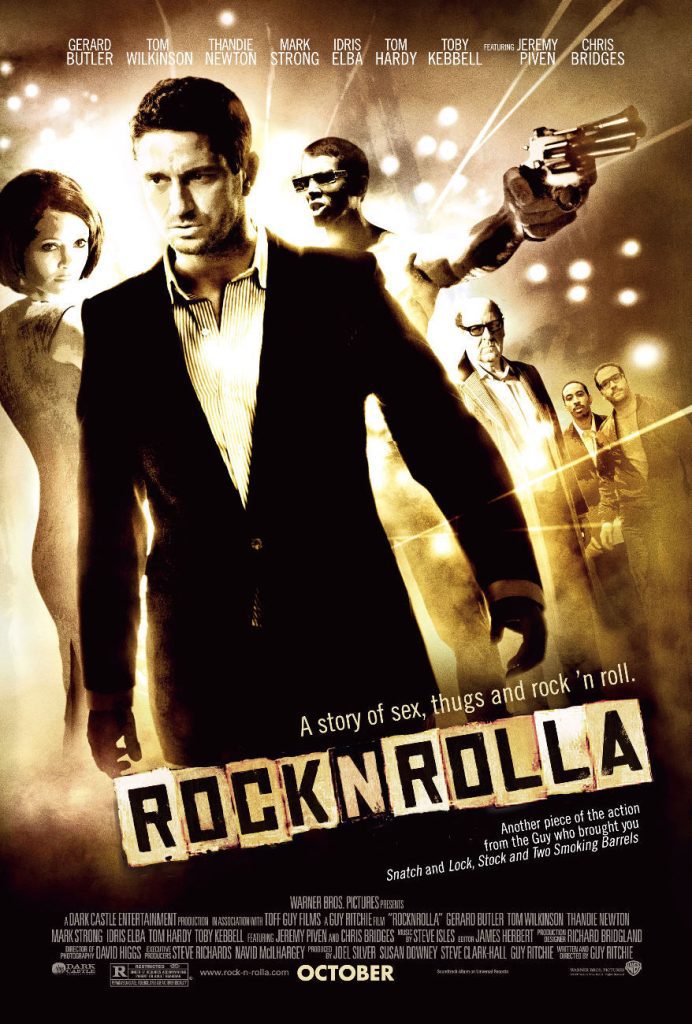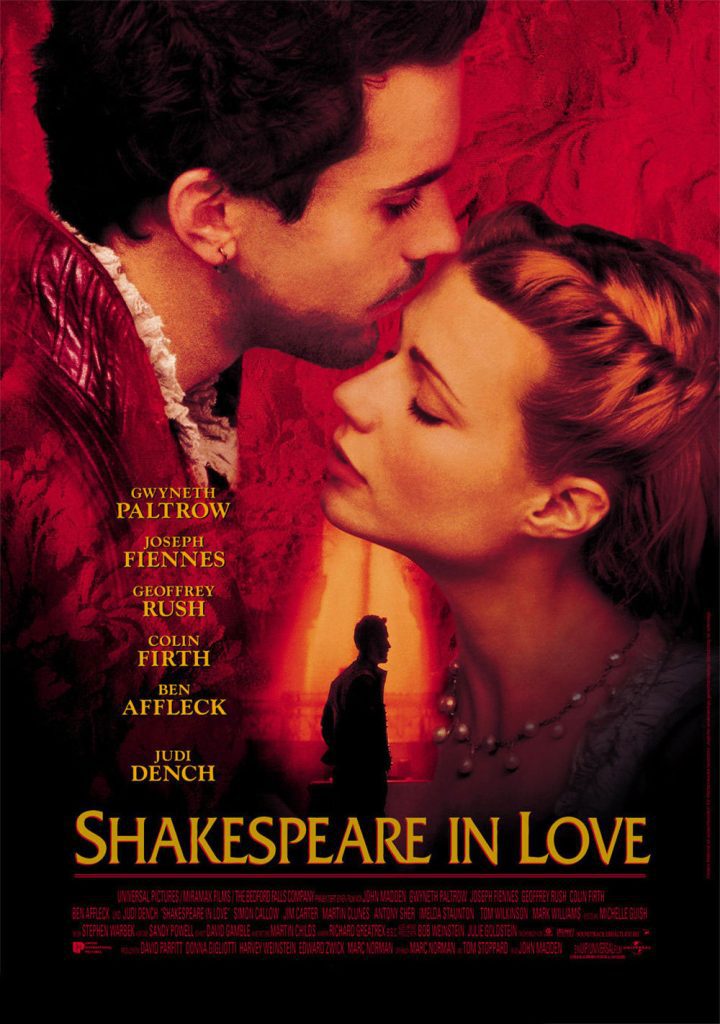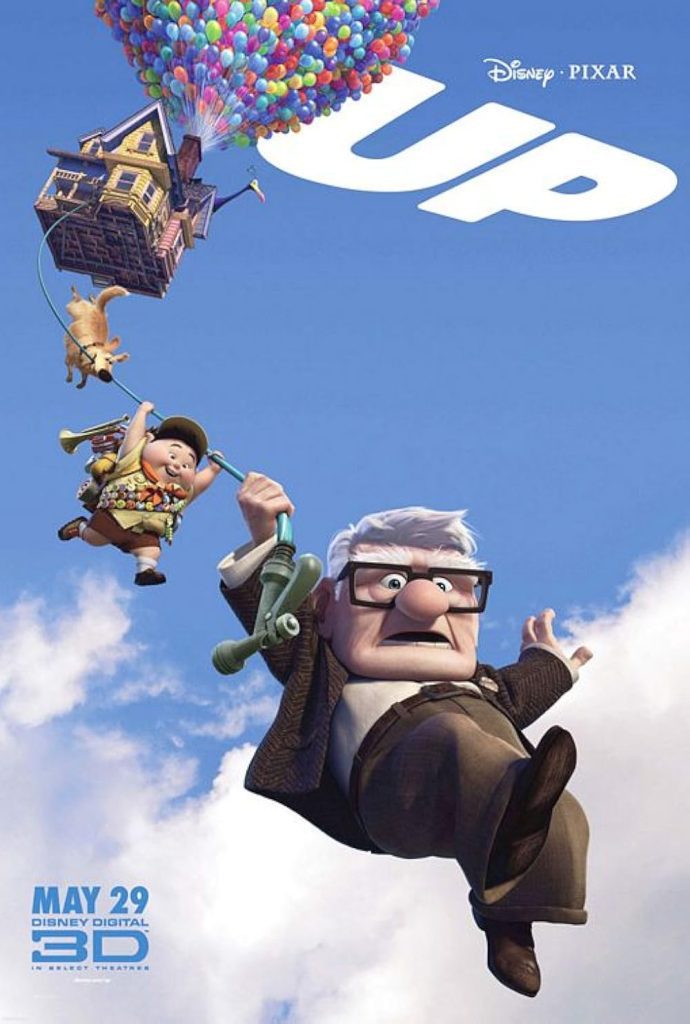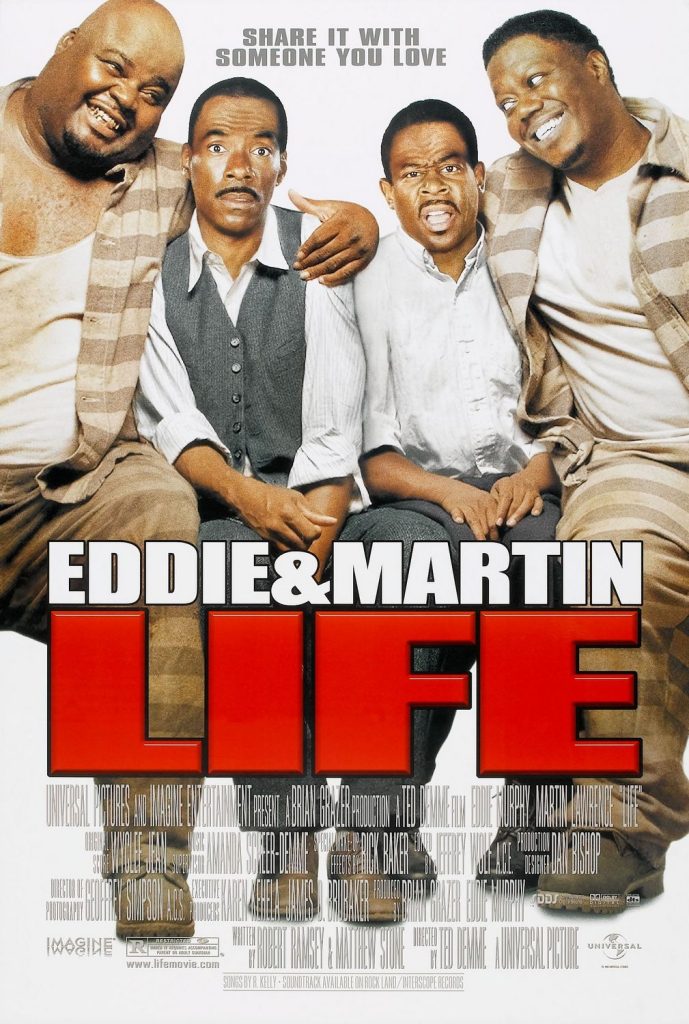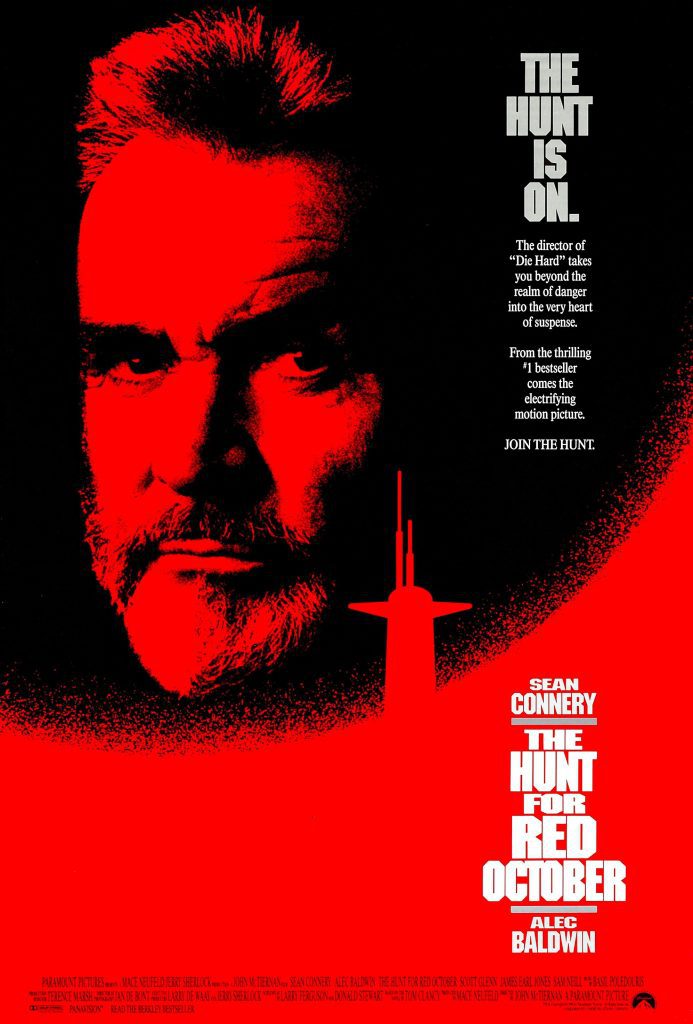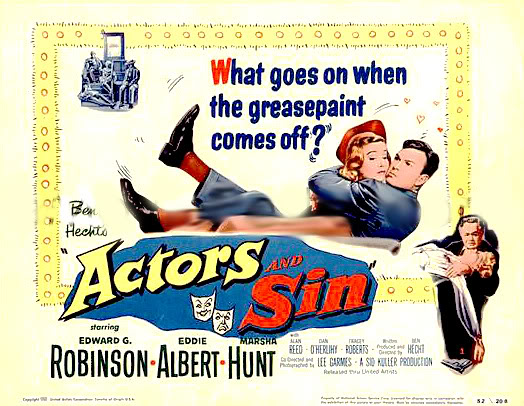
By 1951, writer Ben Hecht had already established himself as one of Hollywood’s considerable screenwriting talents. His impressive resume included work on such films as Scarface, Gone with the Wind, Notorious, Spellbound, His Girl Friday, Wuthering Heights and many, many more. It seems that Hecht was so prolific at that point in time that the studio heads at United Artists felt the writer’s name was enough of a selling point for a film. The theatrical trailer for Actors and Sin heavily promotes the fact that the “brilliant writer” has crafted an, “insider’s look at showbusiness that is seldom seen!” Curiously enough, the trailer does not promote what is surely the most intriguing element of Actors and Sin: that it is actually two brief films combined in one package.
The first story is “Actor’s Blood,” which begins with the murder of stage actress Marcia Tillayou (Marsha Hunt, Blue Denim), jumps backward a few years, works its way towards the murder, and then proceeds to transform itself into an Agatha Christie-style murder mystery…all in just under 45 minutes. The key player in the story is not Marcia, but her father Maurice Tillayou (Edward G. Robinson, The Ten Commandments). Maurice is a washed-up character actor who has been absent from the stage for quite some time, but he is thrilled to see the family name back up in lights when his daughter makes it big. Things are certainly looking good for Marcia. Her stage debut is received well by critics and she marries the acclaimed playwright (Dan O’Herlihy, Twin Peaks) responsible for the work. Alas, the happiness is short-lived. Marcia’s career starts to nosedive, her husband leaves her, Marcia descends into alcoholism, and poor Maurice wrings his hands along the way.
There is an opportunity for insight and depth in this story, but it would seem that Mr. Hecht wrote the screenplay while in a blind rage. His general spite for those in the world of showbusiness is palpable; just take a listen to the dialogue given to the theatre critic (Rudolph Anders) in the film: “I have a brain made of laundry soap. When I write, I give off soap bubbles.” Or how about the moment in which it starts storming outside, and the critic sniffs, “Thunder. Eh, it’s a bit too old-fashioned. Still, I suppose it can be interesting at times.” This material might have been funny if the tone weren’t so preposterously heavy-handed. The material is that of satire, but the tone is that of Hamlet. Hecht also produced and directed the film, and his instruction to the actors seems to have been, “Speak as if every word you are saying is the most important thing that has been said in the history of mankind.” While Robinson is able to make this work within the context of his character, the rest of the cast flounders in their attempts to attain Importance.
The second tale, “Woman of Sin,” is a much less stern affair. It’s a lightweight comedy starring Eddie Albert as a high-powered Hollywood agent hunting for the next great script. By a peculiar stroke of luck, he comes across one of the hottest scripts in Hollywood, but there’s a catch. It seems that the screenplay was written by a 9-year-old girl (Jenny Hecht, the daughter of Ben)! This tale is reasonably engaging early on as a breezy satire, more or less correcting most of the mistakes made by “Actor’s Blood.” The basic concept of a story written by an exceptionally silly 9-year-old earning words of praise and adoration from the likes of Jack Warner and Louis B. Mayer (both playing themselves in fun cameos) is amusing, but there’s an entirely different problem that nearly derails this second story.
That would be young Jenny Hecht as child screenwriter Daisy Marcher. Those who suggest that The Godfather: Part III is the best case against nepotism should take a look at this film, because dear little Jenny is fingernails-on-a-blackboard grating in her key role. She dials up every aspect of precociousness that can afflict a child actor as high as it can possibly go, and her presence effectively destroys any sense of comic momentum that the film had built up to that point. It might very well be the weakest child performance I’ve ever seen. Eddie Albert does a respectable job in his role, but he’s clearly uncomfortable attempting to interact with a child actress as incapable as Jenny Hecht.
The transfer is pretty rough, containing a lot of scratches, flecks, and smudges throughout. Though the DVD does include a short piece demonstrating how bad the film looked before being restored, the finished product is still far from pristine. The audio also suffers from some hissing and crackling at times, though the music is pleasingly clear. DVD extras are limited to a brief interview with Marsha Hunt, the aforementioned restoration comparison and a theatrical trailer. Oddly enough, when you pop in the disc, it plays the restoration footage automatically and then takes you straight to the special features menu rather than the main menu.
The film is an interesting curiosity for Hollywood history buffs, but fails as a cinematic experience. Hecht clearly had a handful of good ideas, but this is a prime example of self-indulgence ruining a picture with potential.
For more movies visit Soap2day.

